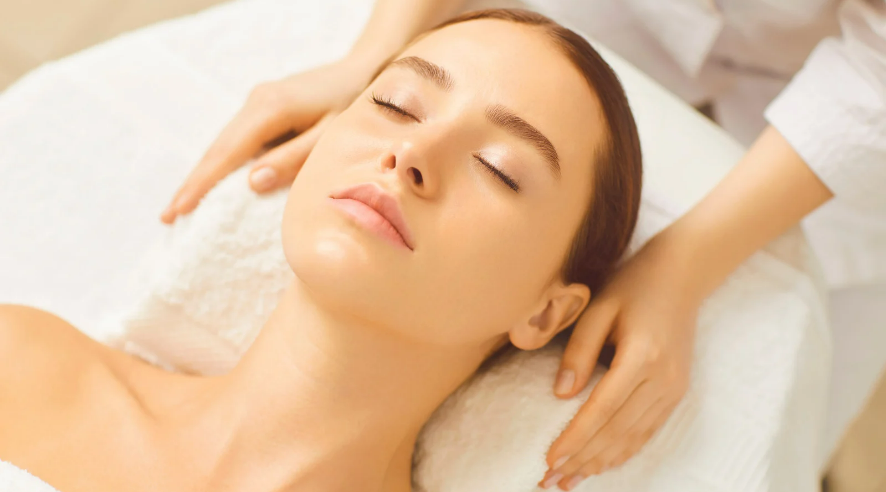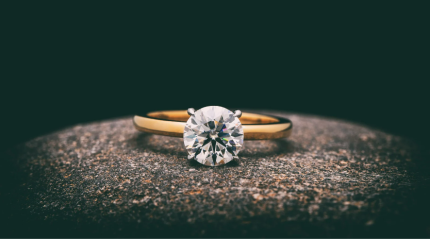The Ultimate Guide to Achieving Glowing Skin: Simple and Effective Skin Care Tips
- 17 January 2022

The appearance of our skin is a major factor in how we present ourselves to the world, and it can greatly affect our confidence and self-esteem. While genetics play a role in the texture and tone of our skin, there are a multitude of environmental factors that can contribute to skin damage, from exposure to the sun to the stress of daily life. Fortunately, taking care of your skin is easier than you might think, and the rewards are well worth the effort.
Cleansing
The first step in any effective skin care routine is cleansing. Cleansing helps to remove dirt, oil, and makeup from the surface of the skin, leaving it feeling refreshed and rejuvenated. It's important to choose a gentle cleanser that is suitable for your skin type, and to use it twice a day, in the morning and in the evening.
Cleansing is a crucial step in any skin care routine, as it helps to remove impurities and prepare your skin for the rest of your routine. When choosing a cleanser, it's important to consider your skin type, as different skin types require different types of cleansing products. For example, those with oily skin may benefit from using a foaming cleanser, while those with dry skin may prefer a creamy, hydrating cleanser. It's also important to choose a gentle cleanser that won't strip your skin of its natural oils, and to avoid using hot water, which can be drying.
Exfoliating
Exfoliating is an important part of skin care as it helps to remove dead skin cells and reveal smoother, brighter skin. Exfoliating can be done using a physical exfoliant, such as a scrub, or a chemical exfoliant, such as an alpha-hydroxy acid (AHA) or beta-hydroxy acid (BHA) product. However, it's important to not over-exfoliate, as this can lead to skin irritation and damage.
Exfoliating helps to remove dead skin cells and reveal smoother, brighter skin. There are two types of exfoliants to choose from - physical and chemical. Physical exfoliants, such as scrubs, use small grains or beads to physically slough off dead skin cells. Chemical exfoliants, such as AHAs and BHAs, use mild acids to dissolve the bonds between dead skin cells, allowing them to be easily removed. It's important to not over-exfoliate, as this can cause skin irritation and lead to further skin damage. A good rule of thumb is to exfoliate once or twice a week, depending on your skin type and tolerance.
Hydrating
Proper hydration is crucial for healthy, glowing skin. It helps to plump up the skin and keep it looking youthful and radiant. Drinking plenty of water is the most important step in staying hydrated, but using a good quality moisturizer can also help to keep your skin hydrated. Choose a moisturizer that is appropriate for your skin type, and apply it to your skin after cleansing and toning.
Proper hydration is essential for healthy, glowing skin, as it helps to keep the skin plump and hydrated. Drinking plenty of water is the most important step in staying hydrated, but using a good quality moisturizer can also help. When choosing a moisturizer, it's important to consider your skin type, as different skin types require different types of moisturizers. For example, those with oily skin may benefit from using a lightweight, oil-free moisturizer, while those with dry skin may prefer a rich, creamy moisturizer. It's also important to choose a moisturizer that contains ingredients that will benefit your skin, such as antioxidants, vitamins, and minerals.
Sun protection
Sun exposure is one of the biggest threats to healthy skin, and it can cause premature aging, dark spots, and even skin cancer. To protect your skin from the damaging effects of the sun, it's important to use a broad-spectrum sunscreen with an SPF of at least 30 every day, even on cloudy days. Apply sunscreen to all exposed skin, and reapply every two hours if you are spending time outdoors.
Sun exposure is one of the biggest threats to healthy skin, as it can cause premature aging, dark spots, and even skin cancer. To protect your skin from the damaging effects of the sun, it's important to use a broad-spectrum sunscreen with an SPF of at least 30 every day, even on cloudy days. Apply sunscreen to all exposed skin, and reapply every two hours if you are spending time outdoors. It's also important to protect your skin from the sun by wearing protective clothing, such as long-sleeved shirts and hats, and seeking shade when possible.
Nutrition
A healthy, balanced diet is important for overall health and wellness, and it can also help to improve the appearance of your skin. Eating a diet rich in vitamins and minerals, such as vitamins A, C, and E, and minerals like zinc and selenium, can help to keep your skin looking its best. Incorporating plenty of fresh fruits and vegetables into your diet can also help to provide your skin with the nutrients it needs.
A healthy, balanced diet is important for overall health and wellness, and it can also help to improve the appearance of your skin. Eating a diet rich in vitamins and minerals, such as vitamins A, C, and E, and minerals like zinc and selenium, can help to keep your skin looking its best. Incorporating plenty of fresh fruits and vegetables into your diet can also help to provide your skin with the nutrients it needs. Additionally, avoiding foods that are high in sugar and processed ingredients can help to reduce inflammation, which can contribute to skin damage and aging.
Achieving healthy, glowing skin takes time and effort, but it doesn't have to be complicated. By incorporating a few simple steps into your daily routine, such as cleansing, exfoliating, hydrating, protecting your skin from the sun, and eating a healthy diet, you can help to keep your skin looking its best. Remember to be gentle with your skin, and to listen to your skin's needs. If you have any concerns or issues with your skin, be sure to consult with a dermatologist to get the best advice and treatment.




